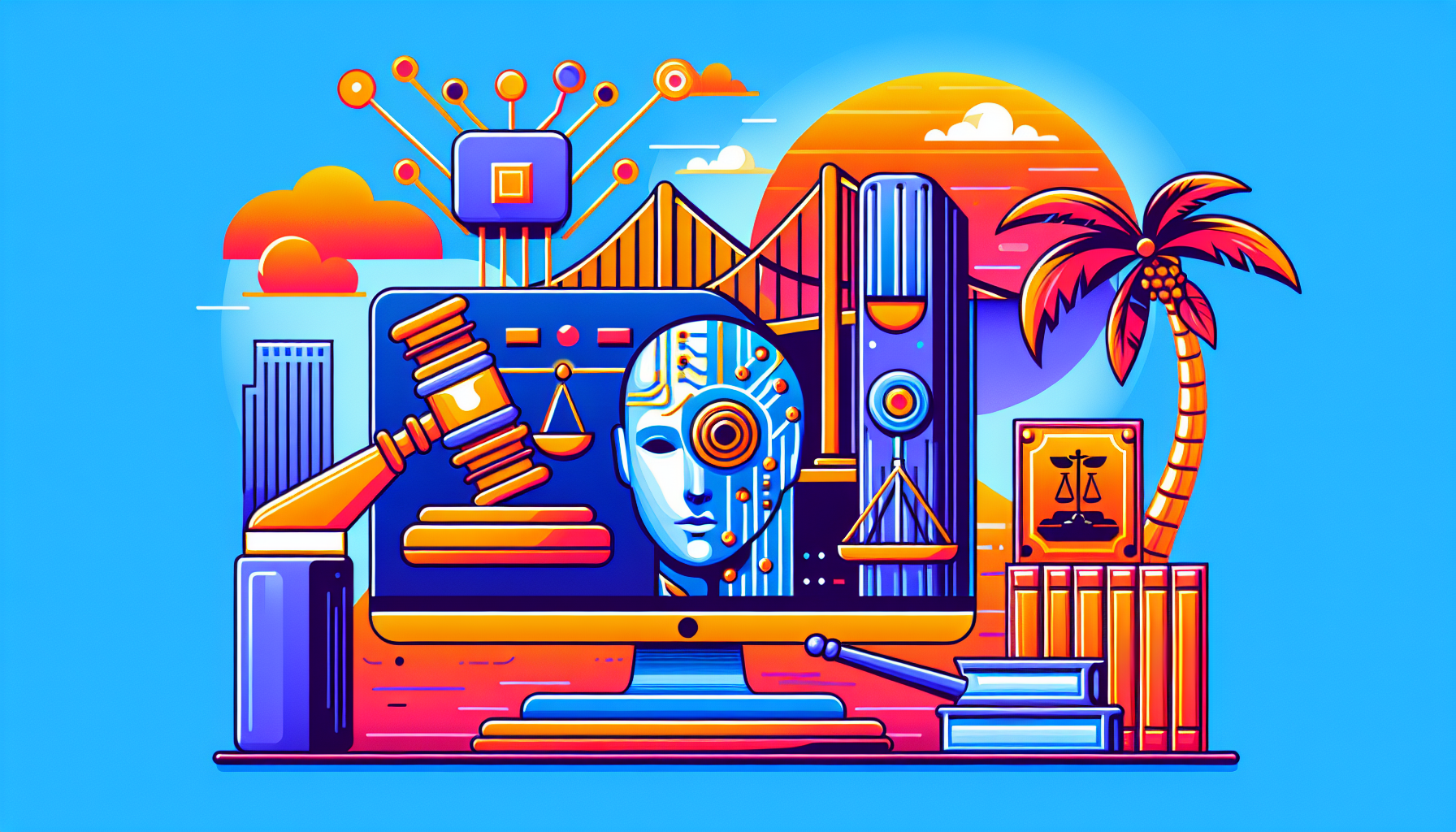
California’s New AI Deepfake Laws
Governor’s Action and Scope
In a move that has set tongues wagging and legal teams scurrying, California Governor Gavin Newsom swung into action at an artificial intelligence conference in San Francisco. Not content with merely shaking hands and kissing babies, he signed three groundbreaking laws aimed squarely at AI-generated deepfakes, particularly the pesky ones that mess with our elections. These laws are touted as some of the toughest in the U.S., and they have a laser-focused aim: to stop the creation and spread of false images and videos in political ads close to Election Day. Election workers and voting machines, consider yourselves under a protective bubble!
Immediate Effect and Legal Challenges
One of these laws is a no-nonsense, take-no-prisoners kind of rule, taking effect immediately. It bestows upon individuals the right to sue for damages over election deepfakes faster than you can say misleading AI-generated content. Courts can also step in to halt the distribution of these misleading marvels. But alas, no good law goes unchallenged. A lawsuit in Sacramento claims these rules are about as free-speech-friendly as a locked diary. Critics argue they’re too broad, leaning heavily toward censorship, which we all know is a hot potato.
Concerns Over Free Speech and Disclosure Requirements
Freedom of speech warriors, including none other than Elon Musk, are waving the red flag, declaring parts of these laws as unconstitutional. Musk didn’t miss a beat, sharing an AI-generated parody video just to drive home the point. The newly minted laws, however, aren’t all about clamping down. They also usher in disclosure requirements. Those dabbling in the dark arts of AI-altered videos and images now have to come clean and disclose their AI wizardry. This clever move aims to draw a clear line between what’s deceitful and what’s just plain old satire or parody.
Implications for the Nation and Effectiveness Concerns
California has always enjoyed its trendsetter status, and these laws might just set the gold standard for AI regulation nationwide. Other states are already peeking over the fence, considering similar proposals to keep election misinformation under control. Yet, here’s the kicker: the actual effectiveness of these laws remains a big question mark. The judicial process tends to be as slow as molasses compared to the breakneck speed at which AI-generated content spreads. Courts may need a few days to issue injunctions, during which time, the damage could already be done and done.
Broader AI Regulation and Industry Impact
The focus on election deepfakes is just chapter one of this new legal saga. Governor Newsom also put his signature on other AI-related laws that reach beyond the voting booth and into Hollywood’s glittering studios. Performers, rejoice! These laws mandate that any contract must spill the beans about AI use concerning performers’ voices and likenesses. No sneaky replication without permission. This significant step ensures that our silver screen stars are safeguarded from unauthorized AI doppelgangers.
The entertainment industry, often a canary in the coal mine for tech advancements, stands to benefit from these protective measures. Actors and performers can sleep easier knowing that their unique voices and visages cannot be hijacked by AI without their blessing. It’s a move that bolsters worker protections in an industry where creativity and individualism are king.






